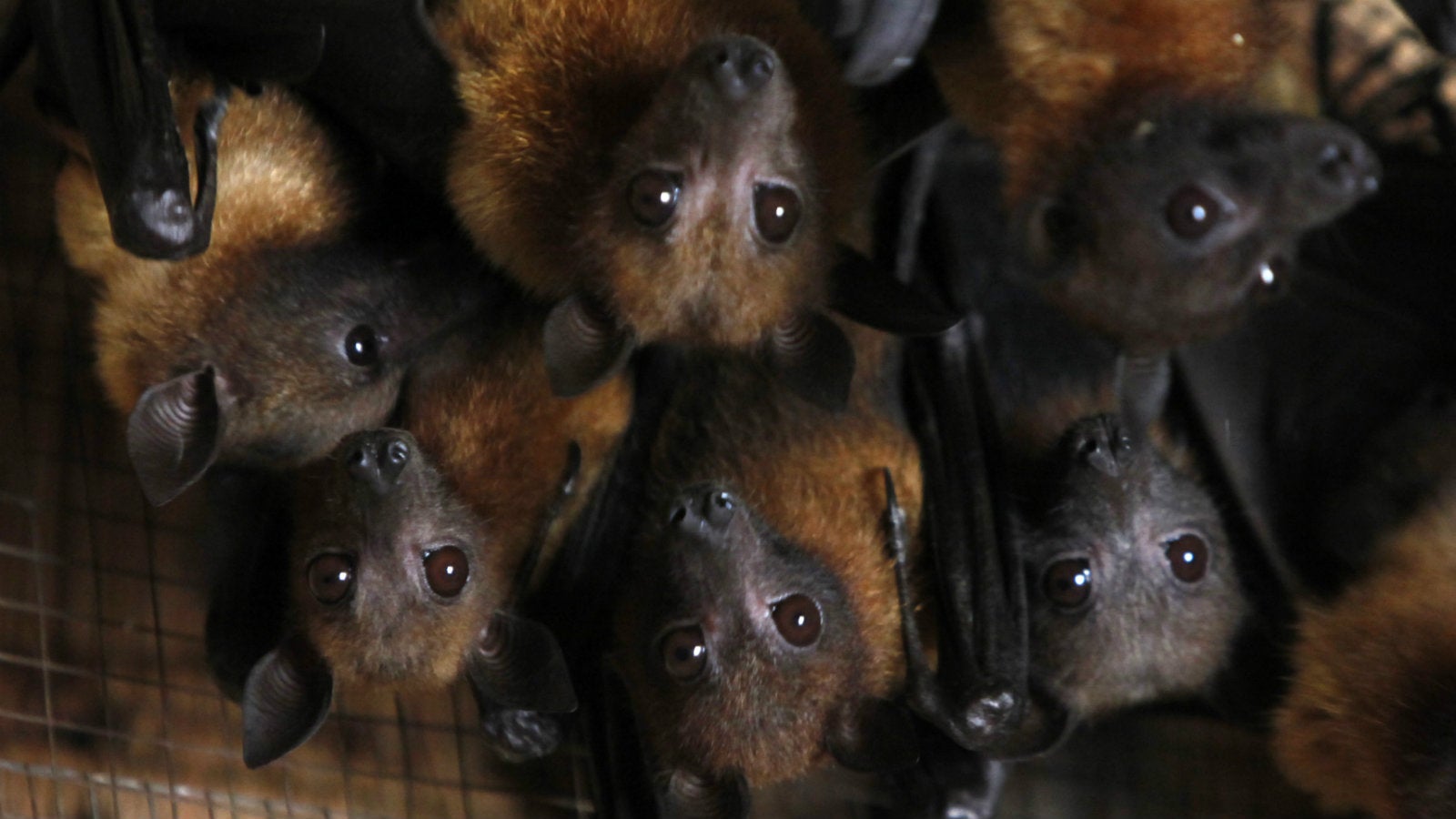A rare and deadly virus spread by fruit bats has been detected in south India
At least five people have died over the past two weeks in the southern Indian state of Kerala after contracting the rare Nipah virus. The condition of nine others is said to be critical.


At least five people have died over the past two weeks in the southern Indian state of Kerala after contracting the rare Nipah virus. The condition of nine others is said to be critical.
Three members of a family in Kozhikode district reportedly died due to virus encephalitis (brain inflammation caused by a virus) and myocarditis (inflammation of the heart muscle). On May 20, Kerala’s health department confirmed that samples of their blood and body fluids had tested positive for Nipah.
Some relatives of the deceased, and those who’d come in contact with them, have been hospitalised, too. Seven have reportedly been placed in the isolation ward at the Kozhikode Medical College Hospital. On May 20, though, two persons under treatment passed away.
The Nipah virus is named after a Malaysian village (pdf) where it was first detected in 1998. That outbreak claimed the lives of 105 people in the southeast Asian country, according to the World Health Organisation (WHO). The Nipah virus infection is a zoonosis, a disease transmitted to humans from animals. Fruit bats, a common sight across south Asia, are natural hosts of the virus and often do not display any symptoms. The virus is released via their saliva, urine, and excreta.
In Malaysia, pigs contracted the disease first and transmitted it to farmers that came in contact with them. Of the 265 cases (pdf) recorded at the time, 90% were pig farmers or those who had some kind of contact with pigs, according to the WHO.
The symptoms of a Nipah virus infection are similar to those associated with influenza, including fever and muscle ache, but also involve brain inflammation in some cases. At the moment, there’s no specific treatment for the disease, so health care professionals can only try to manage the fever and neurological symptoms.
Since 1998, such outbreaks have been recorded almost every year in Bangladesh. In India, they occurred in West Bengal—Siliguri in 2001 and Nadia in 2007, both districts bordering Bangladesh. Over the years, scientists have found that humans often contracted the disease by drinking raw date palm sap tapped directly from trees, a sweet treat that fruit bats, too, enjoy. Infrared cameras caught bats licking the sap before they were collected and consumed by locals. But despite a campaign to discourage the practice in Bangladesh, outbreaks have continued.
Between 1998 and 2008, the virus claimed the lives of over 300 people across Malaysia, Singapore, Bangladesh, and India, according to the WHO. In some cases, human-to-human transmission was also recorded, implying that health care workers could be at risk.
For now, the Kerala government is out to stop people from panicking. Fever clinics and special wards will reportedly be set up in private and government hospitals. The Kozhikode district medical office told the Indian Express newspaper that all people who’d been in contact with the infected are being closely monitored.